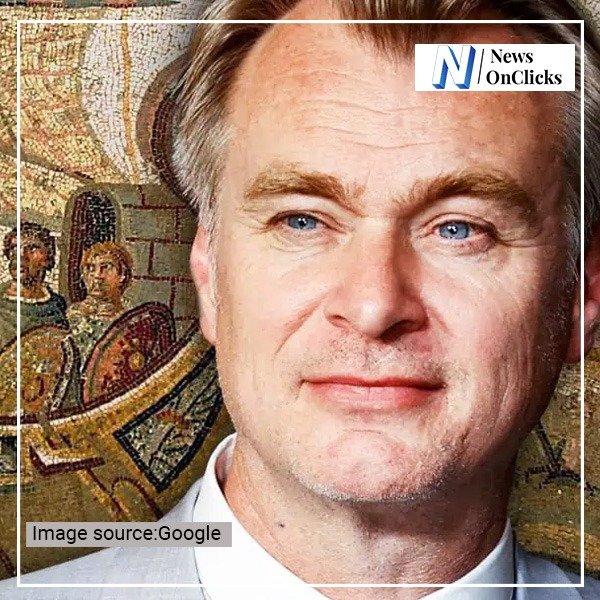
Christopher Nolan is one of the most visionary filmmakers of our time. Known for his mind-bending plots, complex characters, and deep exploration of time and memory, Nolan has captured the imagination of audiences worldwide. As fans eagerly await his upcoming film, The Odyssey, a modern retelling of Homer’s classic, it’s the perfect time to revisit his incredible body of work. Watching Christopher Nolan’s films in the right order can offer a deeper understanding of his cinematic evolution, preparing you for the intricacies of The Odyssey.
In this guide, we’ll explore the best way to watch Christopher Nolan’s films, from his early works to his latest hits. Get ready to dive deep into the world of Nolan’s masterpieces and see how his storytelling style has evolved over the years.
Why Watch Nolan’s Films in a Specific Order?
Christopher Nolan’s movies are more than just standalone films; they are interconnected pieces of a grand narrative puzzle. Each film builds on themes of time, memory, and human nature, giving you a deeper understanding of his unique filmmaking style. Watching his films in the right order enhances your viewing experience, helping you appreciate his growth as a director and providing key insights that will make The Odyssey even more impactful.
The Best Order to Watch Christopher Nolan’s Films
Here’s the ultimate order to watch Christopher Nolan’s films, ensuring you get the most out of his cinematic genius. This list is designed not just chronologically, but also based on how Nolan’s storytelling techniques evolve over time.
1. Memento (2000) – Nolan’s Breakthrough Film
Memento is where it all began. This psychological thriller follows a man with short-term memory loss trying to solve the mystery of his wife’s murder. The film is told in a reverse chronological order, forcing viewers to piece together the narrative just as the protagonist does.
Why watch it first?
Memento introduces Nolan’s signature use of time manipulation, setting the tone for all his future works. This is the perfect starting point for understanding Nolan’s love for complex narratives and non-linear storytelling.
2. Following (1998) – Nolan’s Dark Indie Debut
Before Nolan became a Hollywood giant, he made Following, a small-budget indie film about a man who shadows strangers and becomes entangled in a criminal world.
Why watch it second?
This film offers insight into Nolan’s early themes of obsession, memory, and identity. Watching it after Memento gives you a deeper understanding of the director’s evolving interest in the human psyche.
3. Insomnia (2002) – Nolan’s Hollywood Transition
Insomnia is a psychological thriller starring Al Pacino and Robin Williams, based on the Norwegian film of the same name. It marks Nolan’s entry into Hollywood, as he tackles a more straightforward, albeit still complex, story.
Why watch it third?
Insomnia shows Nolan’s ability to handle larger budgets while maintaining his psychological depth. It serves as a smooth transition from his indie roots to Hollywood.
4. Batman Begins (2005) – Rebirth of a Superhero
With Batman Begins, Nolan redefined the superhero genre. This film tells the origin story of Bruce Wayne, from his tragic childhood to his transformation into Batman.
Why watch it fourth?
Batman Begins introduces Nolan’s complex characters, moral dilemmas, and deep psychological insights into the human condition. This film sets the stage for the exploration of identity, fear, and justice that would become central themes in his career.
5. The Dark Knight (2008) – Redefining Superhero Cinema
The Dark Knight is widely regarded as one of the best superhero films ever made. With Heath Ledger’s unforgettable portrayal of the Joker, the film dives into themes of chaos, morality, and justice.
Why watch it fifth?
This sequel takes Nolan’s exploration of fear, morality, and chaos to new heights. The film’s themes will resonate throughout his later works, making it essential viewing before diving into his more complex films.
6. The Dark Knight Rises (2012) – The Epic Conclusion
Nolan concludes his Batman trilogy with The Dark Knight Rises, an epic and emotionally charged story that explores redemption, fear, and legacy.
Why watch it sixth?
This film provides closure to Nolan’s exploration of Bruce Wayne’s psyche and brings the trilogy to a satisfying conclusion. It’s essential to watch after The Dark Knight to understand the evolution of his thematic focus.
7. The Prestige (2006) – Magic and Obsession
The Prestige is a thrilling exploration of obsession, rivalry, and the cost of ambition. Two magicians, played by Hugh Jackman and Christian Bale, compete to create the ultimate illusion, with devastating consequences.
Why watch it seventh?
After the heavy themes of Batman, The Prestige offers a fresh, intricate narrative with unexpected twists and turns. The film’s focus on obsession and deception echoes themes from Memento and Inception, making it a perfect follow-up.
8. Inception (2010) – Dreams Within Dreams
Inception is one of Nolan’s most iconic films, exploring the idea of dreams within dreams and the subconscious mind. The film follows a group of thieves who steal secrets by entering people’s dreams.
Why watch it eighth?
After The Prestige, Inception raises the stakes with mind-bending visuals, complex ideas, and intricate storytelling. The film builds on the themes of memory and perception that Nolan has been exploring since Memento.
9. Interstellar (2014) – A Sci-Fi Epic About Love and Time
Interstellar takes Nolan’s exploration of time and space to new heights, combining deep scientific concepts with emotional storytelling. The film follows a team of astronauts on a mission to find a new home for humanity.
Why watch it ninth?
Interstellar marries the intellectual complexity of Inception with the emotional depth of The Dark Knight Trilogy. It’s an ambitious film that pushes the boundaries of both science fiction and human emotion.
10. Dunkirk (2017) – A Grounded, Real-Time War Thriller
Dunkirk is Nolan’s portrayal of the World War II evacuation at Dunkirk, France. The film is told in three timelines—land, sea, and air—and is an intense, immersive experience.
Why watch it tenth?
Dunkirk is a shift in Nolan’s style, focusing on real-time events and the visceral experience of survival. It’s a departure from his usual narrative complexity but still showcases his talent for creating tension and drama.
11. Tenet (2020) – Time Inversion and Action
Tenet is Nolan’s most mind-bending film, with characters able to manipulate the flow of time itself. The film’s action sequences, combined with its complex narrative, make it a challenging but thrilling watch.
Why watch it eleventh?
Tenet pushes Nolan’s obsession with time manipulation to its extreme, offering a unique cinematic experience that builds upon the foundations laid in Inception and Dunkirk.
12. Oppenheimer (2023) – The Atomic Age and Moral Dilemmas
Nolan’s Oppenheimer explores the life of J. Robert Oppenheimer, the physicist who developed the atomic bomb. The film delves into the moral complexities of creating a weapon of mass destruction.
Why watch it twelfth?
Oppenheimer marks a return to Nolan’s deep philosophical themes, tackling questions of ethics, science, and the consequences of human ambition. It’s a fitting culmination of his career’s thematic exploration.
Why You Should Watch Nolan’s Films Now
Watching Nolan’s films in this order is not just about preparing for The Odyssey. It’s about understanding the progression of one of the most innovative filmmakers of our time. Nolan’s films are intricate, challenging, and emotionally powerful, and watching them in the right order will give you a greater appreciation for his artistry.
Conclusion
Now that you know the perfect order to watch Christopher Nolan’s films, it’s time to start your cinematic entertaining journey. From the early days of Memento to the complex time manipulation in Tenet, each film offers a unique experience that adds to the overarching narrative of Nolan’s work. And as you prepare for The Odyssey, keep in mind that this filmmaker’s journey through time, memory, and human nature is far from over.
Get ready to explore Nolan’s world—one mind-bending film at a time.









